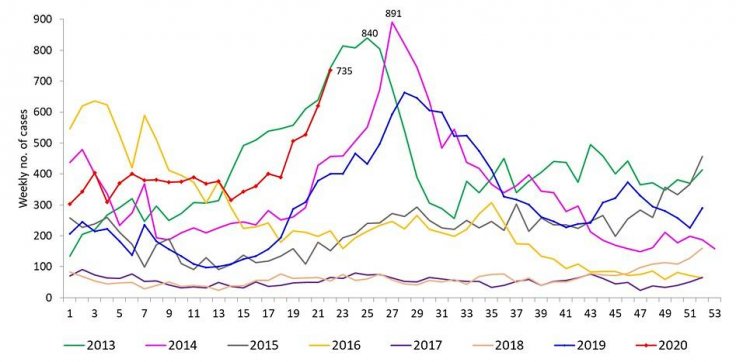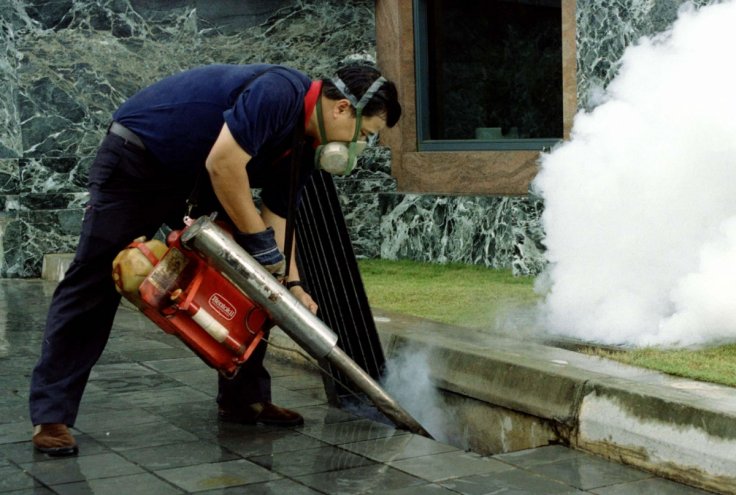Southeast Asian countries have largely been successful in containing the Coronavirus pandemic. Singapore, despite the highest number of COVID-19 cases in the region, has led the way in fighting the pandemic. But now these countries face another outbreak -- dengue. With initial symptoms similar in both diseases, experts fear that new Coronavirus cases could be missed, leading to a surge.
Mosquito-borne illnesses like dengue generally spike in the tropical regions during the March-August window. But this time, the number could be higher than previously recorded. As of June, Singapore has been approaching its all-time highest number of dengue patients while other Southeast Asian countries too have reported significant numbers including Indonesia, Philippines and Malaysia.
Similar Symptoms
A study published in the medical journal, The Lancet, pointed out two cases in Singapore. Both patients had the common symptoms associated with both — fever and coughing — initially tested positive for dengue after a rapid antibody test. But they were found COVID-19 positive later despite not travelling to places with Coronavirus cases.

"Dengue and Coronavirus diseases are difficult to distinguish because they have shared clinical and laboratory features," said the study which was authored by a group of doctors from Singapore's National University Health System, Ng Teng Fong General Hospital and the Environmental Health Institute.
Delayed Response
While that was a possibility during the initial days of the pandemic when COVID-19 rapid test kits were hard to come by, things have changed since. But there are still chances that doctors might consider dengue first if the patient is from a hotspot for that disease. And that may lead to a delayed response for Coronavirus. In addition, similar symptoms have been noticed for other mosquito-borne diseases and influenza.
"Failing to consider COVID-19 because of a positive dengue rapid test result has serious implications not only for the patient but also for public health," the study concluded. "Our cases highlight the importance of recognising false-positive dengue serology results in patients with COVID-19."
The added problem in detecting Coronavirus is in its early stages is due to non-specific symptoms which could have larger implications as some of them might be diagnosed as dengue.

Jeremy Lim, a partner at the Oliver Wyman, a global health and life sciences firm, told South China Morning Post that the antibody test for dengue looked at certain protein spikes on the surface of the virus — common in both diseases.
"It's like a lock and key, and if a virus has enough notches that fit the lock, it will match. For dengue and the coronavirus, they have enough common notches that you can get a false positive," he said.
Lockdown Helped Dengue
While the lockdown measures were important to keep people inside to stop the spread of Coronavirus, it helped dengue. The disease is transmitted by the bite of female Aedes aegypti mosquito, which thrives in stagnant clean water around residential places. As factories and restaurants shut down due to the lockdown, mosquitos bred freely.
"Circuit breaker due to COVID-19 is a likely factor, making this year's situation worse. When more people stay at home all day, there could be more residential mosquito breeding and more opportunities for 'blood meals'," said Associate Professor of Infection and Immunity Dahai Luo from Nanyang Technological University.









